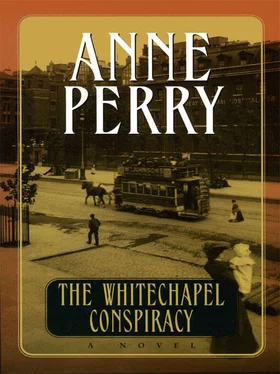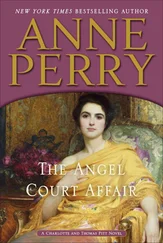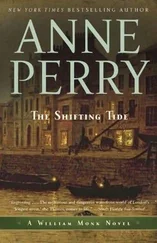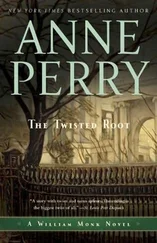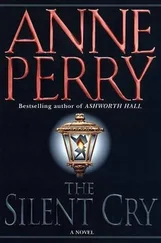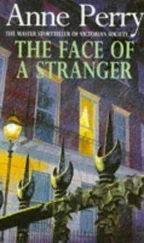
Anne Perry
The Whitechapel Conspiracy
Book 21 in the Thomas Pitt series, 2001
To Hugh and Anne Pinnock,
in friendship
The courtroom at the Old Bailey was crowded. Every seat was taken and the ushers were turning people back at the doors. It was April 18, 1892, the Monday after Easter, and the opening of the London Season. It was also the third day in the trial of distinguished soldier John Adinett for the murder of Martin Fetters, traveler and antiquarian.
The witness on the stand was Thomas Pitt, superintendent of the Bow Street police station.
From the floor of the court Ardal Juster for the prosecution stood facing him.
“Let us start at the beginning, Mr. Pitt.” Juster was a dark man of perhaps forty, tall and slender with an unusual cast of feature. He was handsome in some lights, in others a trifle feline, and there was an unusual grace in the way he moved.
He looked up at the stand. “Just why were you at Great Coram Street? Who called you?”
Pitt straightened up a little. He was also a good height, but he resembled Juster in no other way. His hair was too long, his pockets bulged, and his tie was crooked. He had testified in court since his days as a constable twenty years before, but it was never an experience he enjoyed. He was conscious that at the very least a man’s reputation was at stake, possibly his liberty. In this case it was his life. He was not afraid to meet Adinett’s cold, level stare from the dock. He would speak only the truth. The consequences were not within his control. He had told himself that before he climbed the short flight of steps to the stand, but it had been of no comfort.
The silence had grown heavy. There was no rustling in the seats. No one coughed.
“Dr. Ibbs sent for me,” he replied to Juster. “He was not satisfied with all the circumstances surrounding Mr. Fetters’s death. He had worked with me before on other matters, and he trusted me to be discreet should he be mistaken.”
“I see. Would you tell us what happened after you received Dr. Ibbs’s call?”
John Adinett sat motionless in the dock. He was a lean man, but strongly built, and his face was stamped with the confidence of both ability and privilege. The courtroom held men who both liked and admired him. They sat in stunned disbelief that he should be charged with such a crime. It had to be a mistake. Any moment the defense would move for a dismissal and the profoundest apologies would be offered.
Pitt took a deep breath.
“I went immediately to Mr. Fetters’s house in Great Coram Street,” he began. “It was just after five in the afternoon. Dr. Ibbs was waiting for me in the hall and we went upstairs to the library, where the body of Mr. Fetters had been found.” As he spoke the scene came back to his mind so sharply he could have been climbing the sunlit stairs again and walking along the landing with its huge Chinese pot full of decorative bamboo, past the paintings of birds and flowers, the four ornate wooden doors with carved surrounds, and into the library. The late-afternoon light had poured in through the tall windows, splashing the Turkey rug with scarlet, picking out the gold lettering on the backs of the books that lined the shelves, and finding the worn surfaces of the big leather chairs.
Juster was about to prompt him again.
“The body of a man was lying in the far corner,” Pitt continued. “From the doorway his head and shoulders were hidden by one of the large leather armchairs, although Dr. Ibbs told me it had been moved a little to enable the butler to reach the body in the hope that some assistance could be given-”
Reginald Gleave for the defense rose to his feet. “My lord, surely Mr. Pitt knows better than to give evidence as to something he cannot know for himself? Did he see the chair moved?”
The judge looked weary. This was going to be a fiercely contested trial, as he was already uncomfortably aware. No point, however trivial, was going to be allowed past.
Pitt felt himself flushing with annoyance. He did know better. He should have been more careful. He had sworn to himself he would make no mistake whatever, and already he had done so.
He was nervous. His hands were clammy. Juster had said it all depended upon him. They could not rely absolutely on anyone else.
The judge looked at Pitt.
“In order, Superintendent, even if it seems less clear to the jury.”
“Yes, my lord.” Pitt heard the tightness in his own voice. He knew it was tension but it sounded like anger. He cast his mind back to that vivid room. “The top shelf of books was well above arm’s reach, and there was a small set of steps on wheels for the purpose of making access possible. It lay on its side about a yard away from the body’s feet, and there were three books on the floor, one flat and closed, the other two open, facedown and several pages bent.” He could see it as he spoke. “There was a corresponding space on the top shelf.”
“Did you draw any conclusions from these things which caused you to investigate further?” Juster asked innocently.
“It seemed Mr. Fetters had been reaching for a book and had overbalanced and fallen,” Pitt replied. “Dr. Ibbs had told me that there was a bruise on the side of his head, and his neck was broken, which had caused his death.”
“Precisely so. That is what he has testified,” Juster agreed. “Was it consistent with what you saw?”
“At first I thought so…”
There was a sudden stirring of attention around the room, and something that already felt like hostility.
“Then, on looking more closely, I saw several small discrepancies that caused me to doubt, and investigate further,” Pitt finished.
Juster raised his black eyebrows. “What were they? Please detail them for us so we understand your conclusions, Mr. Pitt.”
It was a warning. The entire case rested upon these details, all circumstantial. The weeks of investigation had uncovered no motive whatsoever for why Adinett should have wished harm to Martin Fetters. They had been close friends who seemed to have been similar in both background and beliefs. They were both wealthy, widely traveled, and interested in social reform. They had a wide circle of friends in common and were equally respected by all who knew them.
Pitt had rehearsed this in his mind many times, not for the benefit of the court, but for himself. He had examined every detail minutely before he had even considered pursuing the charge.
“The first thing was the books on the floor.” He remembered stooping and picking them up, angry that they had been damaged, seeing the bruised leather and the bent pages. “They were all on the same subject, broadly. The first was a translation into English of Homer’s Iliad, the second was a history of the Ottoman Empire, and the third was on trade routes of the Near East.”
Juster affected surprise. “I don’t understand why that should cause your doubt. Would you explain that for us.”
“Because the rest of the books on the top shelf were fiction,” Pitt answered. “The Waverley novels of Sir Walter Scott, a large number of Dickens, and a Thackeray.”
“And in your opinion the Iliad does not go with them?”
“The other books on the middle shelf were on the subjects of Ancient Greece,” Pitt explained. “Particularly Troy, Mr. Schliemann’s work and discourses, objects of art and historical interest, all except for three volumes of Jane Austen, which would more properly have belonged on the top shelf.”
Читать дальше
